How to wake up early in the morning in winter: 11 tips for a more productive start to the day
Knowing how to wake up early in the morning in winter can be a challenge. Here, two sleep doctors reveal the best tips to try
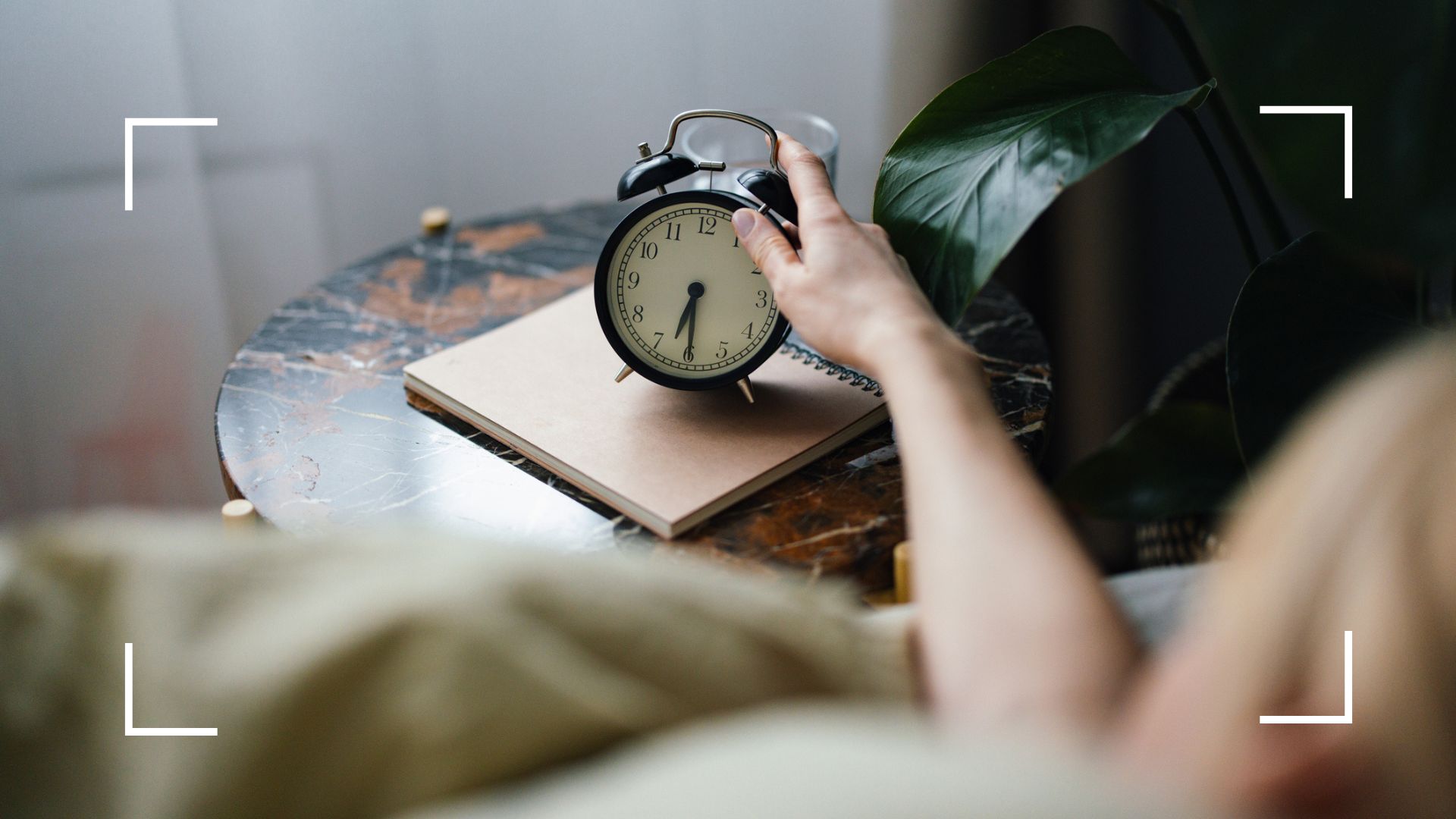

Now the clocks have gone back, many of us will start to struggle with waking up early in the morning. In winter, the mornings are darker and there's nothing more tempting than switching off the alarm and rolling over when the sun's yet to come up.
Waking up early can be physically a lot more challenging as well. The lack of sunlight first thing can leave us feeling foggy with our sleep schedules and body clocks disrupted by the change, and some people find themselves dealing with the difficult symptoms of seasonal affective disorder (SAD).
However, there are a few things you can do to make it easier to wake up early in the morning in winter. Here, woman&home speaks to two certified sleep doctors to reveal the must-dos, and don'ts, to getting out of bed this season. From the changes to your routine to help you learn how to sleep better to how to beat SAD, here's what you need to know.
How to wake up early in the morning in winter
1. Put your alarm out of reach
The first step to understanding how to wake up early in the morning in winter is to make physical changes to your bedroom that make it easier for you to get out of bed. Firstly, sleep specialist Dr Lindsay Browning suggests moving your alarm clock out of reach, so you have to get out of bed to turn it off.
"There aren’t many things more annoying than your alarm, so it going off non-stop from the other side of the room is a great way to get you out of bed," she says. "It gives you that motivation you need and once you’re up you will be ready to start your day."
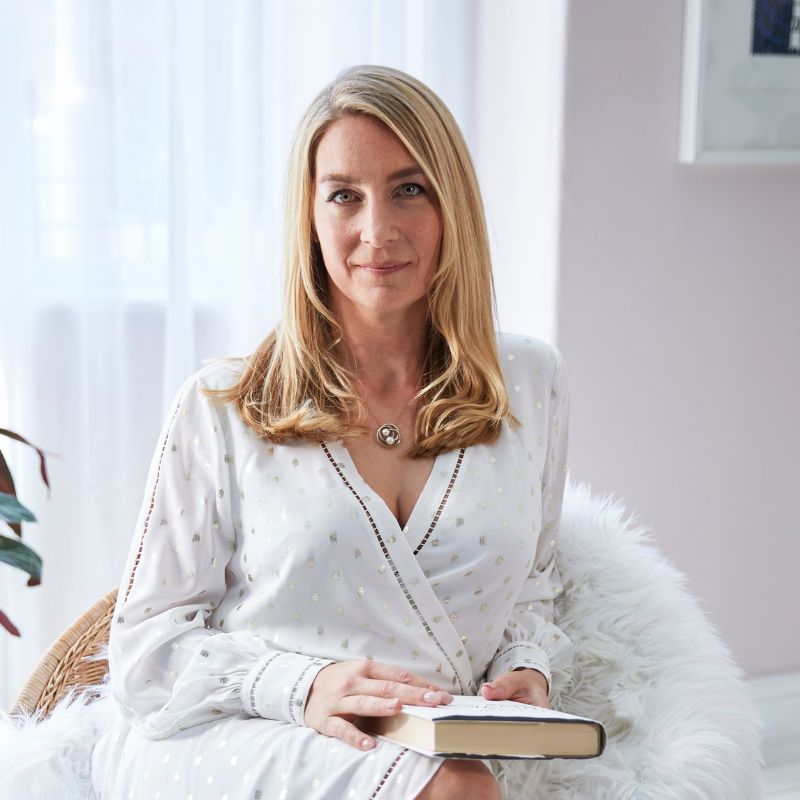
Dr Lindsay Browning is a chartered psychologist and associate fellow of the British Psychological Society, a member of the British Sleep Society, a sleep specialist, author of the self-help sleep book, Navigating Sleeplessness, and the in-house expert for And So To Bed.
Dr Browning has a doctorate from the University of Oxford, where she investigated the relationship between worry and insomnia. She is passionate about helping people of all ages to sleep well, working with organisations and hotels to offer sleep consultancy and better sleep sessions.
2. Look at your phone
These days, many of us sleep with our phones charging by our beds. Typically, we'd say this was something to avoid. Blue light stops us from drifting off to sleep as it prevents the release of the sleep hormone melatonin. In the mornings though, it can be useful.
"Getting natural or artificial blue light onto your eyes can help you wake up as it stops melatonin production and helps to release cortisol, the waking hormone," says Dr Guy Meadows, sleep specialist, co-founder, and clinical lead at The Sleep School.
Sign up for the woman&home newsletter
Sign up to our free daily email for the latest royal and entertainment news, interesting opinion, expert advice on styling and beauty trends, and no-nonsense guides to the health and wellness questions you want answered.
But if you've moved your phone to the other side of the room already, as it also works as your alarm clock, a sunrise lamp could be the answer. "Sunrise lamps can help by gently flooding the room with light, helping you to wake up naturally," says Dr Meadows. This is a good substitute for natural light, which tends to be in short supply during cold, dark winter mornings.

Dr Guy Meadows has been studying human physiology for 24 years, 19 of which have been devoted to sleep research and the prevention of sleeping disorders. He graduated with a first-class BSc Honours degree from Glamorgan University, then an MSc (Distinction) at King's College London in Human and Applied Physiology, and completed his doctorate at Imperial College London. Whilst studying there, he worked in the sleep research laboratories of the Royal Brompton and Charing Cross Hospitals, where he investigated the effects of sleep apnoea on the regulation of the human brain.
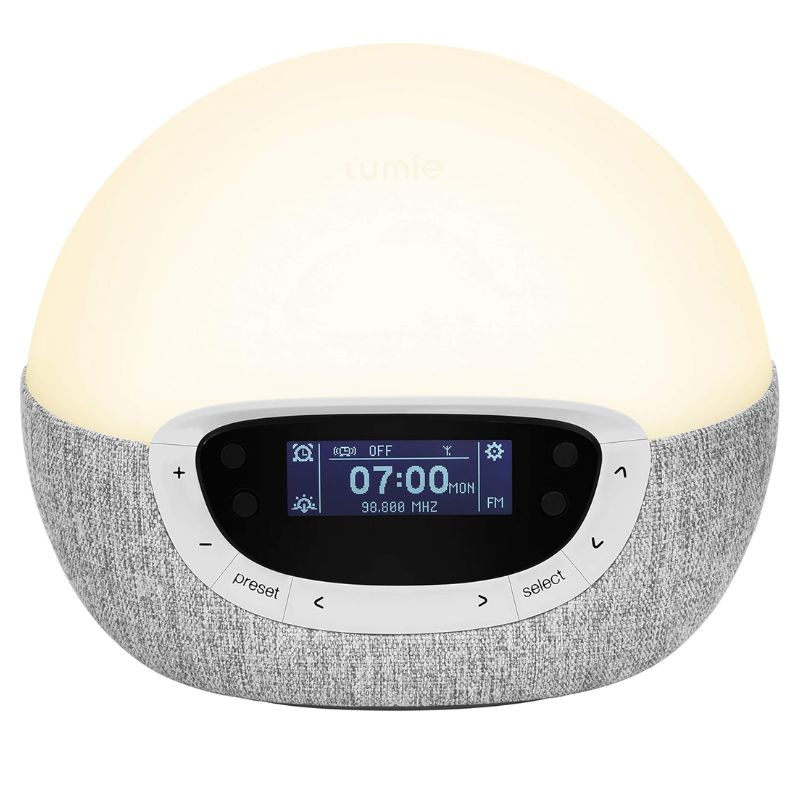
The Lumie Blodyclock Shine 300 is a sunrise alarm clock designed to wake you up naturally with a 15 - 90 minute duration and choice of final light intensity. You also have the option to wake up with a radio or sound alarm as well, and snooze options are available.
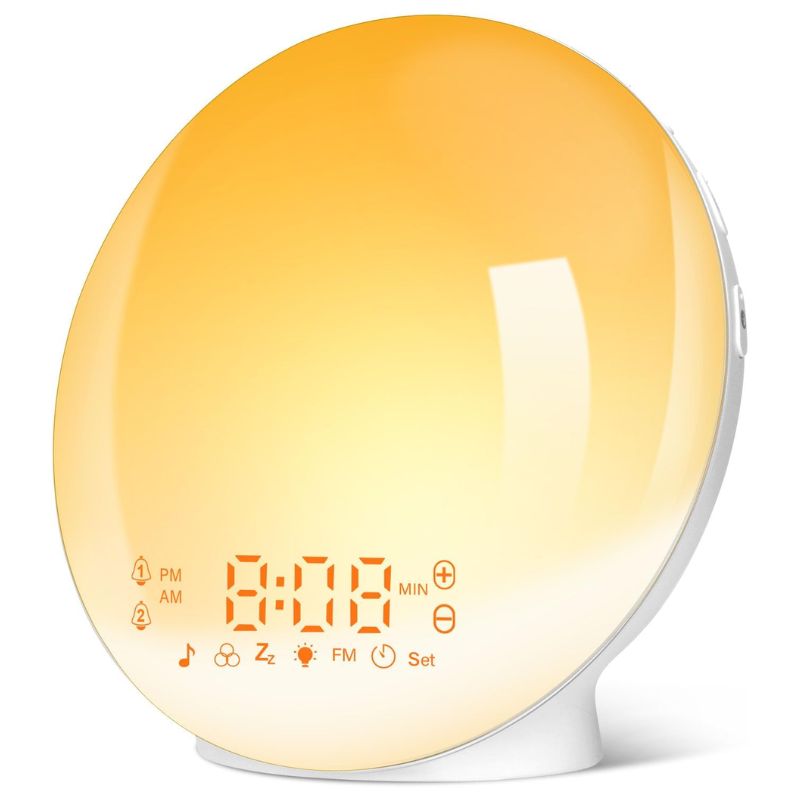
The ARTINABS alarm clock is an Amazon bestseller with hundreds of 5-star reviews. All you need to do is set the alarm time and gradually, simulated sunlight fills your bedroom from a low 10% right up to maximum shine. It starts with a red sunrise hue and develops into bright sunlight.
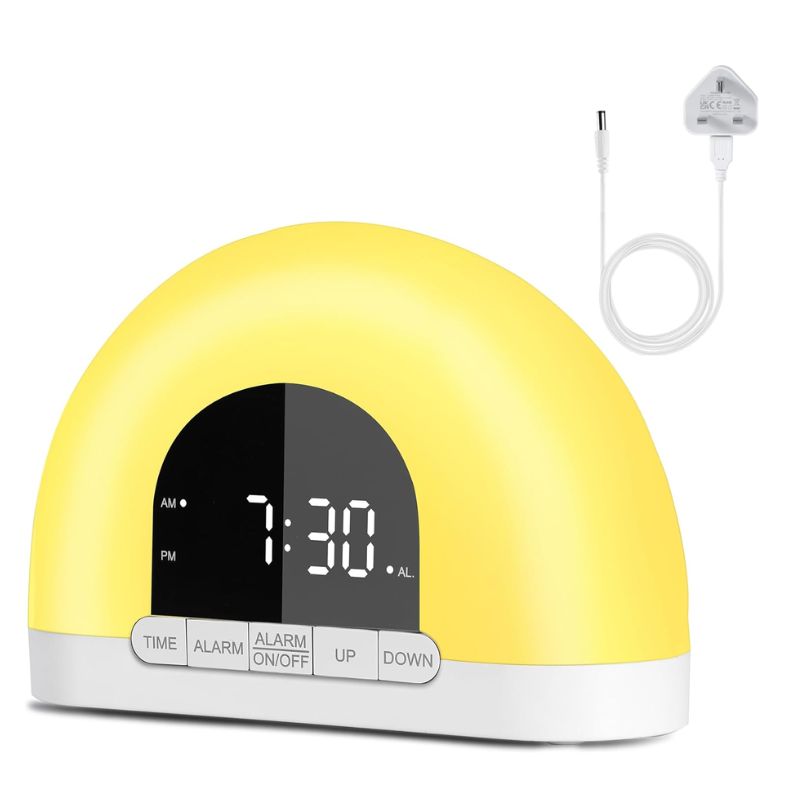
This two in one night light and sunrise alarm is a great budget-friendly option for those interested in trying a sunrise alarm. Much like the others, you can wake up slowly to a developing sunrise (from intensities 1 - 30), snooze the alarm (for nine minutes), and add a noise alarm to your wake up.
3. Sleep in a cooler room, even in winter
It might sound counterproductive in the colder months but it's important not to be too warm when you go to bed. Otherwise, you might find your sleep through the night is disturbed and of a lower quality, leading to problems waking up in the morning.
"We sleep better in a cooler environment," explains Dr Meadows. "The ideal temperature for sleeping was reported to be a cool 16 to 17C. For the best sleep, switch off the central heating and swap your lightweight summer duvet for a higher tog winter one. Alternatively, use a combination of sheets, quilts and blankets, as this allows you to more easily regulate your temperature at night for better sleep."
4. Get out of bed as soon as the alarm sounds
"As tempting as it is, lying in bed and thinking to yourself ‘just ten more minutes’ can actually make things worse," says Dr Browning. "You’ll either end up falling back asleep, which will make you late, or you’ll be lying there with your negative thoughts before the day has even begun."
Also, the sleep you may get between alarm sounds isn't good restorative sleep anyway, so you don't benefit at all from the extra 10 minutes.
"Waking up is a habit, so it can be learnt. Waking up as soon as your alarm sounds will become a habit and therefore getting out of bed this winter will be no problem," she says. "One little tip to learn how to wake up early in the morning in winter is to sit up as soon as your alarm goes off. Making simple posture changes can help to wake your body and keep you from hitting the snooze button."
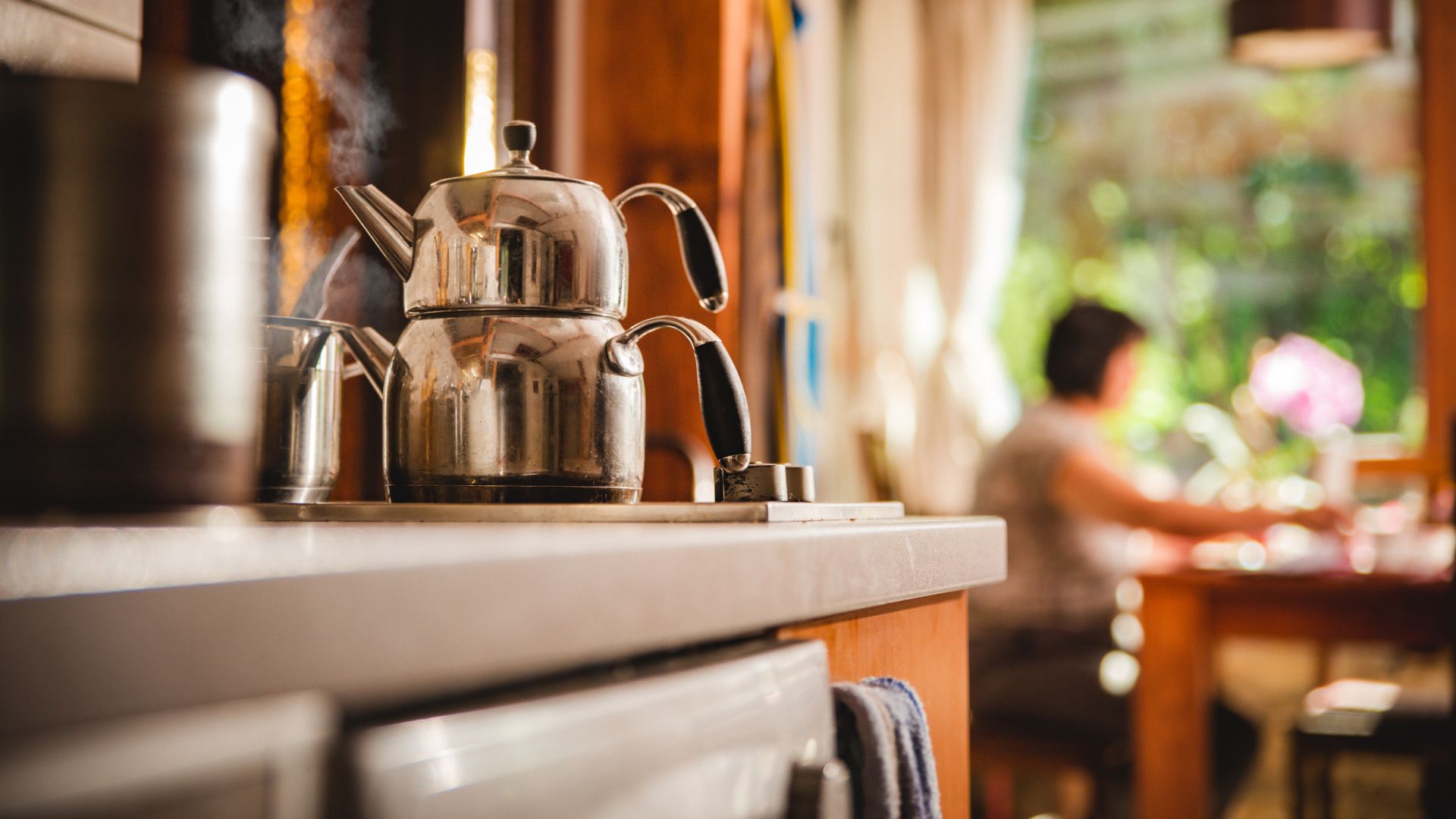
5. Eat something warm for breakfast
Some people don't like to eat or drink anything too early in the morning but if you like to start your day with something, make it a warm cup of coffee or tea, or breakfast like porridge.
"This will not only warm you up but will also help replenish your energy levels. If you are using the oven to cook a breakfast, leave the oven door open once the oven has been turned off to release heat to the rest of the house," Dr Browning suggests. It could even help you learn how to boost your mood early in the morning, offering a warming and fulfilling start to the day.
6. Plan your day the night before
One reason we might find it hard to get up early in the morning in winter is the prospect of a looming to-do list. The stress can force many people to keep waking up early when they don't want to, while others find it difficult to move under the stress.
So, work out what's on your to-do list the night before. That way, Dr Browning says, you'll reduce any anxiety associated with your morning activities and be able to sleep better in the first place.
"Before you end your evening and decide to go to sleep, write down what you are going to get done and organise your next day. This will not only make your day more productive, it will also reduce anxiety when you go to bed because you won’t be lying there worrying about what you need to do tomorrow, resulting in you falling asleep easier," she says.
"The more sleep you get, the less tired you’ll feel in the morning, which will ultimately get you out of bed quicker. You can also plan what you’re going to wear and pack your lunch the night before so you save time in the morning."
7. Shower immediately after waking up
Getting out of a warm bed into the cold isn't pleasant - so get out of the warm and into the warm, Dr Browning suggests.
"When it’s cold, [getting out of bed] seems like an almost impossible task. Having a shower straight after getting out of bed is a great way to get the blood flowing, warming you up and helping boost your energy for the day ahead," she says.
8. Open your curtains immediately
As noted by both Dr Browning and Dr Meadows, light is an integral part of an early morning routine - especially if you want to know how to wake up early in the morning in winter, as there's not much of it.
So, as early as possible, get into the habit of opening your curtains first thing. "Doing so will not only give you a reason to get out of bed, but as the bright light fills your eyes it will help you feel more alert. It also makes falling back asleep much harder, as no one wants to sleep with the sun shining in their face, or with the next-door neighbour glaring at you through your window," says Dr Browning.
If you feel comfortable doing so, depending on where you live, you could even leave them open all night to encourage your body to wake up with the natural light.
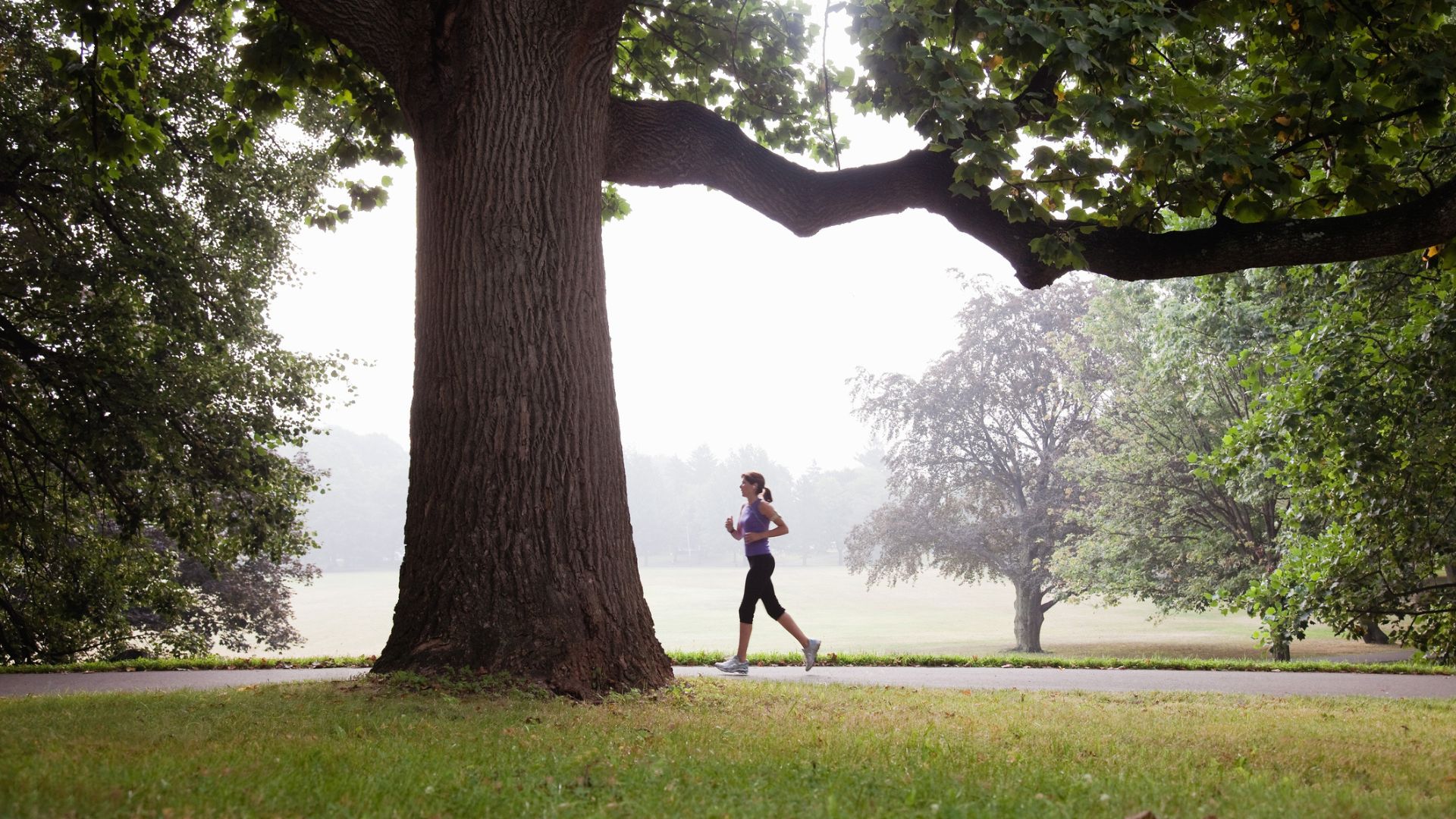
9. Go outside
Naturally, the next step to this is to go outside. Stepping outside for walks, whether that's a walking workout or walking meditation, can be the difference between an easy wake-up routine and a struggle.
"During the winter months, aim to get as much light exposure as possible by getting outside for walks, ideally in the morning when the light is brightest and avoid wearing sunglasses. If you work indoors, aim to sit near a window or make a point of standing by one on your break," says Dr Meadows.
10. Get some exercise
Speaking of walking, exercise is one of the best ways to learn how to wake up early in the morning in winter. Although, it's perhaps one of the hardest habits to keep going when the temperature drops.
"We are less likely to work out in winter," says Dr Meadows. "However, being active outside in the daytime, for as little as 10 minutes, can improve your night sleep quality by boosting natural light exposure and tiredness levels."
If you're dealing with the winter blues as a result of the weather as well, exercise is a sure-fire way to stop feeling sad in the short term too, thanks to the steady flow of endorphins.
11. Get up and go to bed at the same time every night
To make something a habit, it has to become an easy part of your routine, the experts say. One way to make sleep hygiene a better habit, in general, is to start waking up and going to bed at the same time every night.
"In addition to the light/dark cycle, our daily habits such as when we choose to go to bed and get up also help to keep our body clock and therefore our sleep on time," says Dr Meadows. "Keeping a regular sleep-wake cycle throughout the entire year therefore strengthens the link between your bedtime and falling asleep and your rise time and waking up refreshed, reducing the impact of the seasons."
Why is it so hard to wake up in the morning in winter?
Lack of early morning light
If you find it hard to know how to wake up early in the morning in winter, you're not the only one. Research from the University of Tromsø suggests that the change in the seasons has the greatest effect on the timing of our sleep.
In some seasons (like summer), we're more likely to get up and go to bed earlier in the evening. This, Dr Meadows says, can be explained by the early morning light, which shifts the release of melatonin and the natural body cooling process to slightly earlier in the evening. In winter, the opposite occurs, so we're more inclined to go to bed later in the evening and get up later in the morning.
Changes in body clock
But that's not all, he says. "The arrival of winter brings with it a number of potential challenges for sleep including clock changes, lowered immunity and seasonal affective disorder," he warns.
The clocks only change by one hour, but it can have a substantial effect on our body, he says. "The human body clock, which is responsible for regulating the timing of our sleep, is dependent on timekeepers such as our sleep schedule when we choose to eat, work, move and expose ourselves to light. When the clock changes, so does the timing of these behaviours and it's an effect that worsens sleep." Much like how we get used to different time zones though, moving from jet lag into regular functioning, our body clocks eventually catch up with the change.
Seasonal illness
Equally, research by the University of California suggests that we're much more likely to become ill in the winter seasons with colds and flu. This is a vicious circle when it comes to sleep, notes Dr Meadows, as good quality sleep is essential for our immune systems. But colds, flu, and other seasonal illnesses can prevent us from getting sleep in the first place.
Seasonal affective disorder (SAD)
Some people may also suffer from Seasonal Affective Disorder (SAD) in the darker months, which is a type of depression that occurs when daylight hours start to dwindle and temperatures drop. "SAD is reported to be more common in countries where there are greater changes in weather and daylight hours between the seasons, such as in the UK," says Dr Meadows. "It is also more prevalent in women, with SAD symptoms typically including low mood or feelings of sadness, depression or hopelessness."
The research around the condition, he says, also suggests that those experiencing SAD tend to have more broken and lighter nights of sleep, leading to feelings of being intensely tired in the morning.
However, there are lifestyle changes you can make to lessen its impact, from incorporating more of the best foods for seasonal affective disorder into your diet to investing in a light therapy lamp.
If you think you may be experiencing SAD or have concerns about your sleep health, it's best to speak to your doctor as they can advise on the best changes to make for your lifestyle.
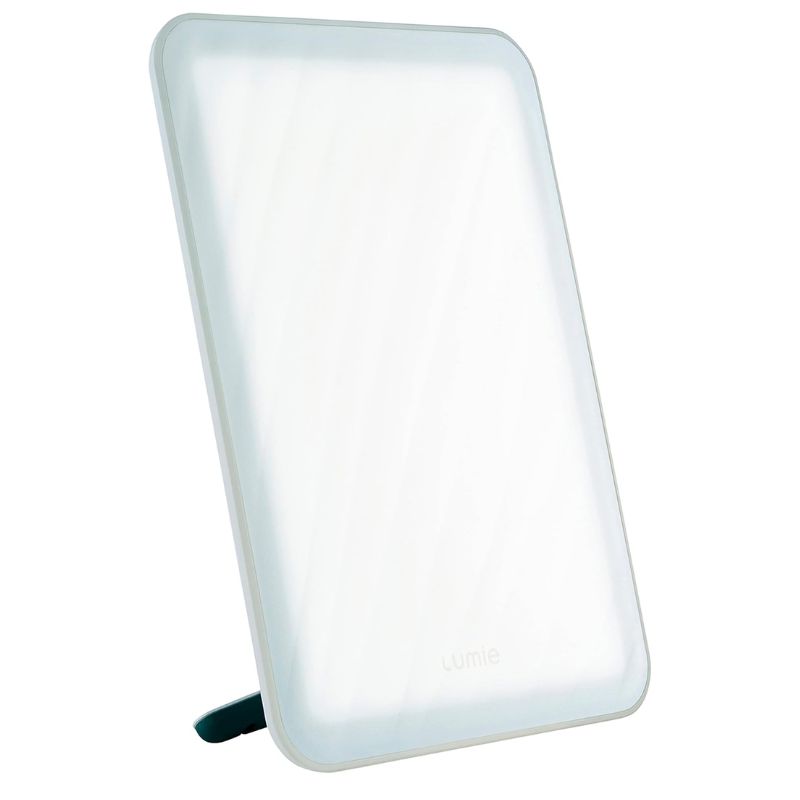
The Lumie Vitamin L is a great option if you think a light therapy lamp could help with your SAD symptoms. The lamp produces 10,000lux at 20cm, with 30 minutes of exposure time recommended. You can use in the portrait or landscape position and the device measures 20 x 28 cm.

Beurer TL30UK SAD Lamp simulates natural daylight of 10,000 lux at a distance of 10cm. It comes with a protective pouch so you can take your light anywhere with you and a clip stand to hold the tablet-shaped device in place.
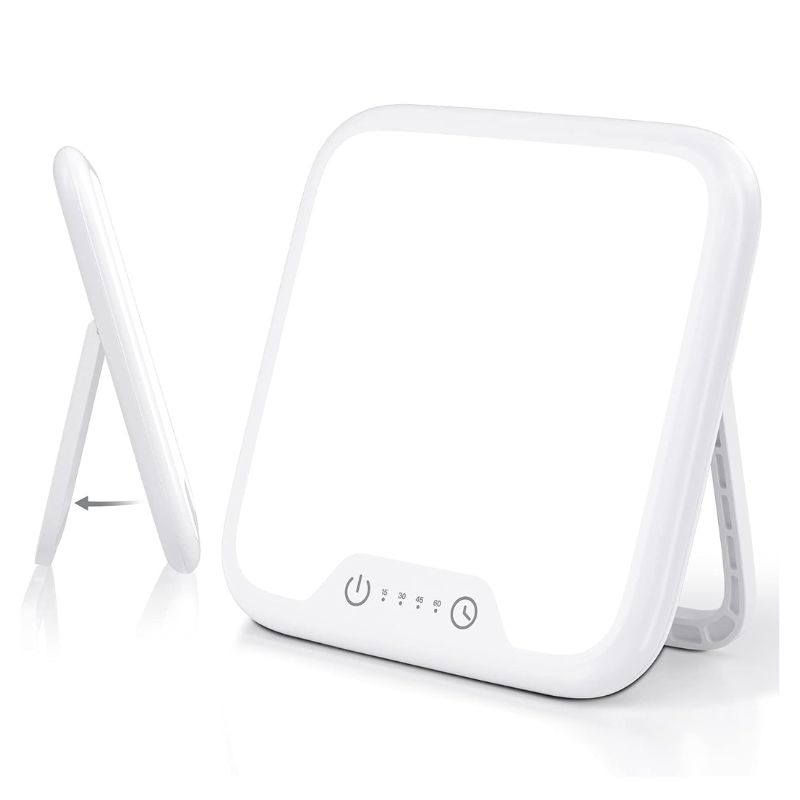
For a budget-friendly option, Ruiodr's SAD lamp is worth trying. It also offers 10,000lux from a comfortable distance, has a slim and transportable design, with a 90 degree foldable backing to make set up easy.

Grace Walsh is woman&home's Health Channel Editor, working across the areas of fitness, nutrition, sleep, mental health, relationships, and sex. She is also a qualified fitness instructor. In 2025, she will be taking on her third marathon in Brighton, completing her first ultra marathon, and qualifying as a certified personal trainer and nutrition coach.
A digital journalist with over seven years experience as a writer and editor for UK publications, Grace has covered (almost) everything in the world of health and wellbeing with bylines in Cosmopolitan, Red, The i Paper, GoodtoKnow, and more.